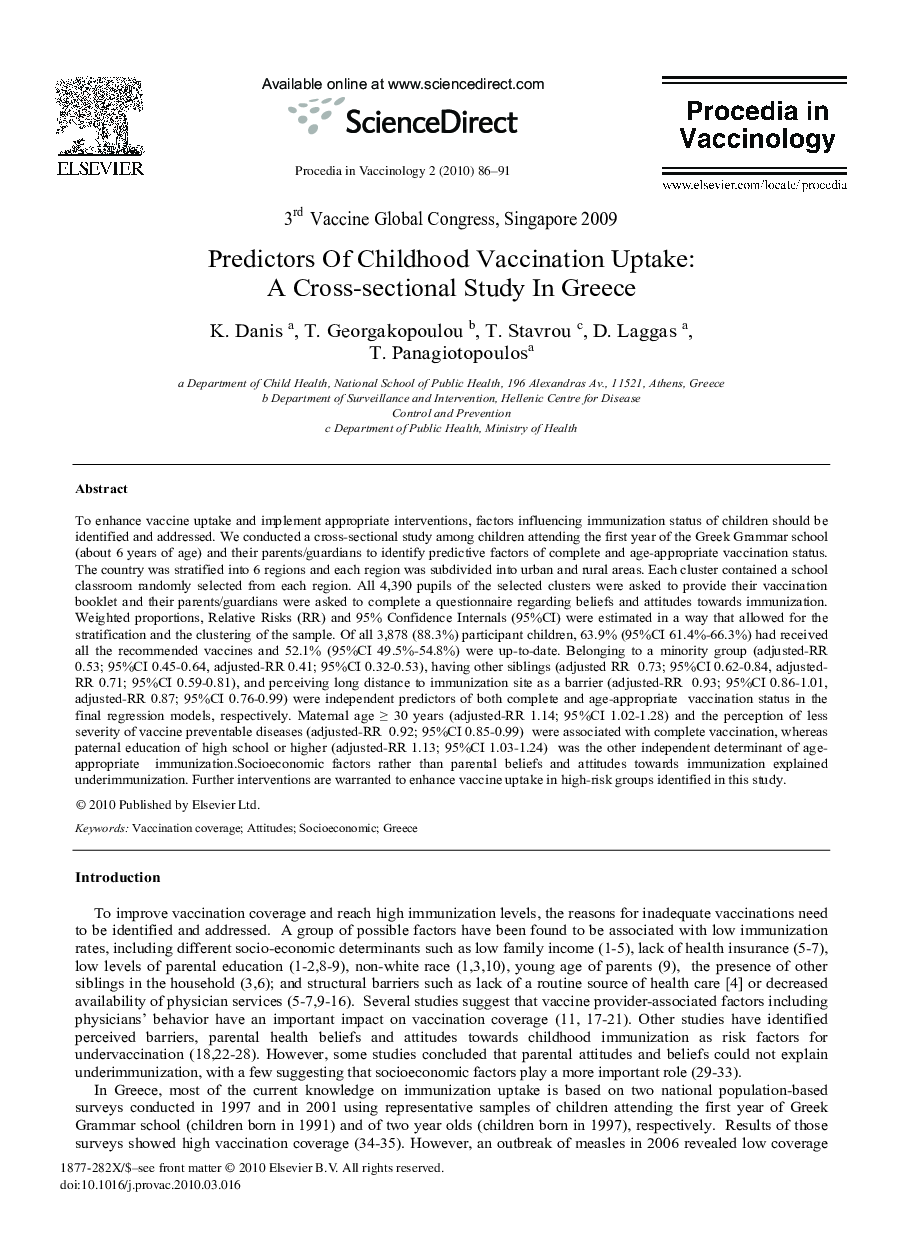| Article ID | Journal | Published Year | Pages | File Type |
|---|---|---|---|---|
| 2473808 | Procedia in Vaccinology | 2010 | 6 Pages |
To enhance vaccine uptake and implement appropriate interventions, factors influencing immunization status of children should be identified and addressed. We conducted a cross-sectional study among children attending the first year of the Greek Grammar school (about 6 years of age) and their parents/guardians to identify predictive factors of complete and age-appropriate vaccination status. The country was stratified into 6 regions and each region was subdivided into urban and rural areas. Each cluster contained a school classroom randomly selected from each region. All 4,390 pupils of the selected clusters were asked to provide their vaccination booklet and their parents/guardians were asked to complete a questionnaire regarding beliefs and attitudes towards immunization. Weighted proportions, Relative Risks (RR) and 95% Confidence Internals (95%CI) were estimated in a way that allowed for the stratification and the clustering of the sample. Of all 3,878 (88.3%) participant children, 63.9% (95%CI 61.4%-66.3%) had received all the recommended vaccines and 52.1% (95%CI 49.5%-54.8%) were up-to-date. Belonging to a minority group (adjusted-RR 0.53; 95%CI 0.45-0.64, adjusted-RR 0.41; 95%CI 0.32-0.53), having other siblings (adjusted RR 0.73; 95%CI 0.62-0.84, adjusted-RR 0.71; 95%CI 0.59-0.81), and perceiving long distance to immunization site as a barrier (adjusted-RR 0.93; 95%CI 0.86-1.01, adjusted-RR 0.87; 95%CI 0.76-0.99) were independent predictors of both complete and age-appropriate vaccination status in the final regression models, respectively. Maternal age ≥ 30 years (adjusted-RR 1.14; 95%CI 1.02-1.28) and the perception of less severity of vaccine preventable diseases (adjusted-RR 0.92; 95%CI 0.85-0.99) were associated with complete vaccination, whereas paternal education of high school or higher (adjusted-RR 1.13; 95%CI 1.03-1.24) was the other independent determinant of age-appropriate immunization.Socioeconomic factors rather than parental beliefs and attitudes towards immunization explained underimmunization. Further interventions are warranted to enhance vaccine uptake in high-risk groups identified in this study.
